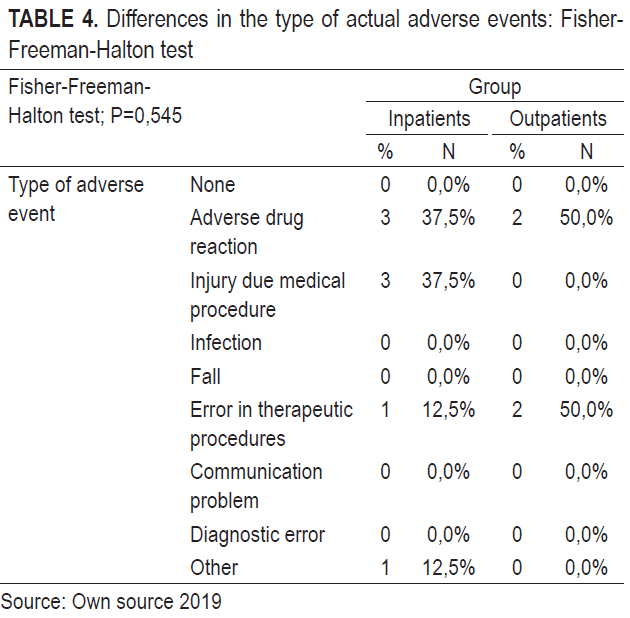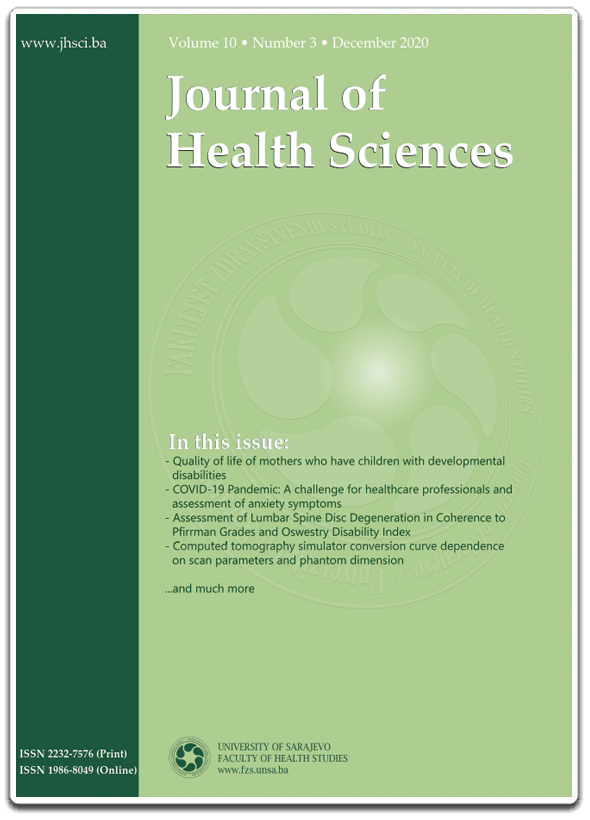Relationship between functional capacity and the occurrence of adverse events during healthcare utilization
DOI:
https://doi.org/10.17532/jhsci.2021.1174Keywords:
Functional capacity, elderly, adverse events, healthcareAbstract
Introduction: Adverse events, safety incidents, and medical errors in healthcare can be avoided only by understanding the causes of their occurrence, and by applying the knowledge gained from the analysis of similar previous events. Since it is known that most adverse events do not originate from a single cause, most important is timely identification of numerous contributory states that can give us the opportunity to define a number of possible solutions to correct process errors and deficiencies in the system itself. The aim of this paper is to investigate the association between functional capacity of elderly living with cardiovascular diseases and the occurrence of adverse events during use of health-care services.
Methods: Assessment of functional limitations was done using the Groningen Activity Restriction Scale (GARS). The presence of adverse events was evaluated after interviews with subjects and review of medical records. Differences in continuous numerical values between inpatient and outpatient service users were analyzed by the Mann–Whitney U-test. Spearman’s correlation coefficients of the number of actual adverse events with the presence of restrictions in daily activities were calculated. Fisher’s exact test or Fisher-Freeman-Halton test (in cases of table sizes larger than 2 × 2 format) analyzed the differences in category variables.
Results: The total number of adverse events was 30 (10.1% of the total number of subjects), while there were 12 actual adverse events (40.0% of the total number of adverse events). No statistically significant correlation was found between the limitations in performing daily activities and the occurrence of actual adverse events (p = 0.173).
Conclusion: The research conducted in this paper showed that the functional capacity of the elderly with chronic disease is not exclusively related with the occurrence of adverse events associated with health-care utilization.
Downloads

Downloads
Published
License
Copyright (c) 2021 Dijana Babić, Danica Železnik, Milan Milošević

This work is licensed under a Creative Commons Attribution 4.0 International License.










